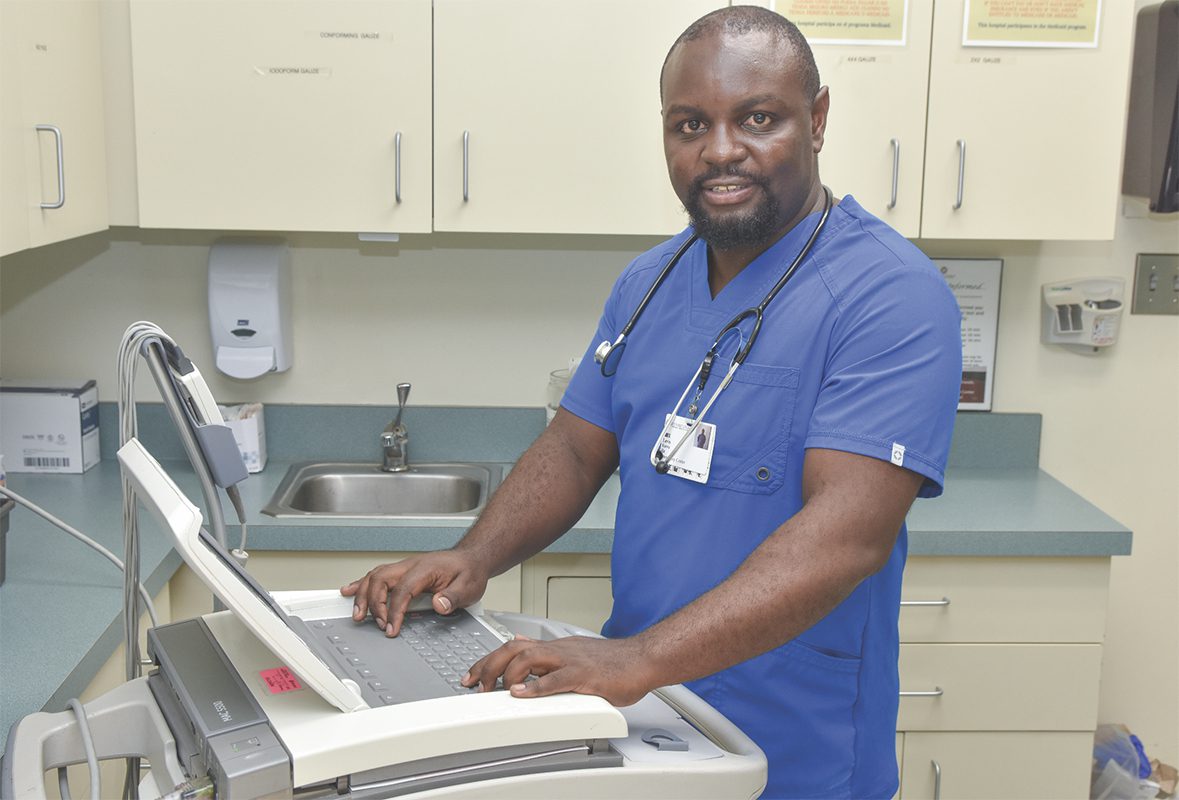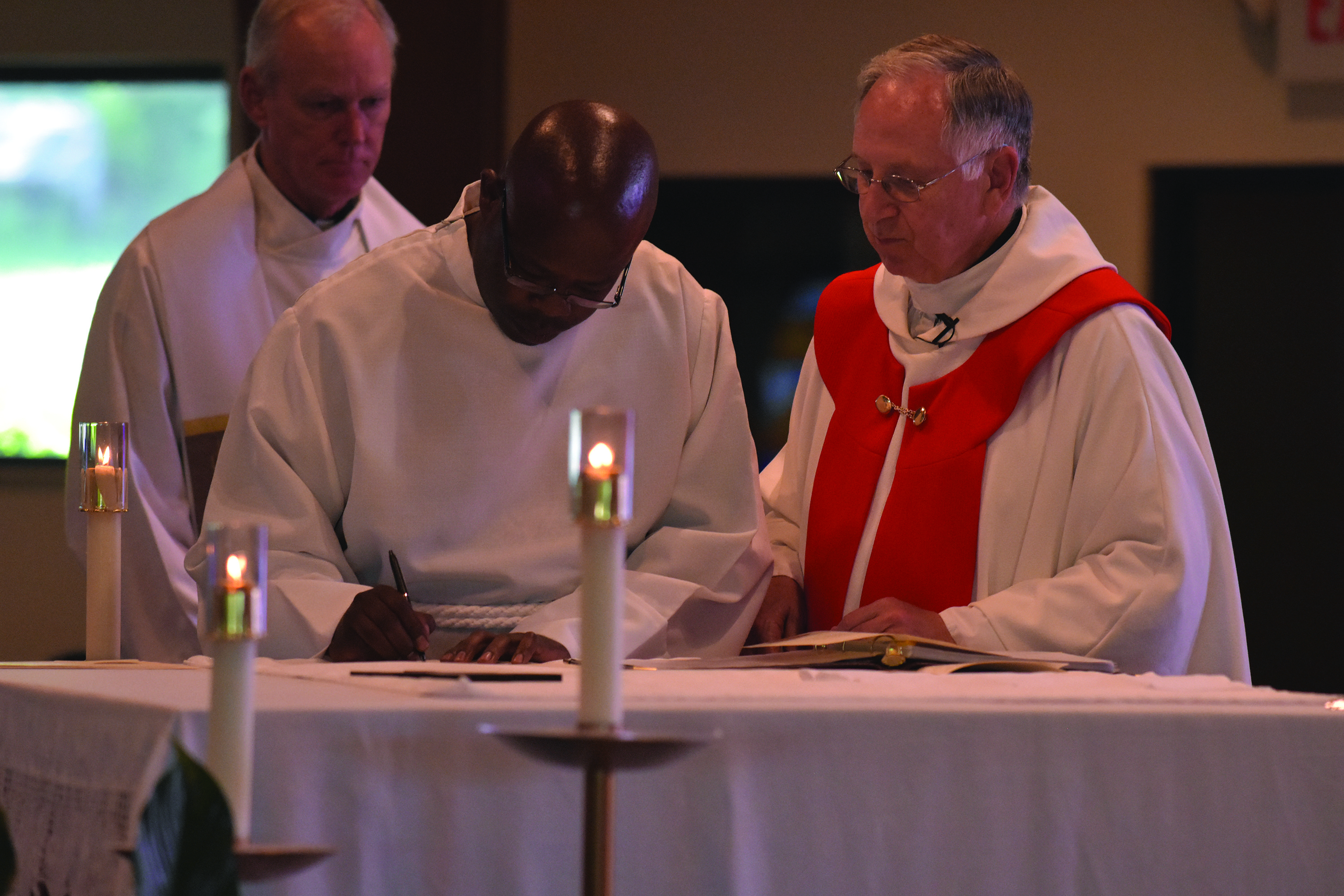

Brother Levis Kuwa just might be one of Glenmary’s heroes. He’s worked as an emergency room nurse in Georgia’s Randolph County’s regional hospital for some years, tending to all manner of crises in this small town setting. Already struggling to stay open, the COVID-19 pandemic forced its closure in October.
There was a reasonable fear that the pandemic could have done in Brother Levis, too. But that didn’t stop him: “I responded to the call to join Glenmary and to become a nurse. I thought it was a privilege to be able to be working in the front line.”
Brother Levis could not avoid COVID-19 in those front lines. “It was in the early days of the COVID spread in the U.S.,” he recalls. “We didn’t know much…they gave us symptoms to look for.” It was a patient with those symptoms who infected Brother Levis. “We were just wearing regular masks back then.” The patient was sent home, then came back. She had pneumonia, without any obvious symptoms. “I was in front of her many times, changing IV tubes, wearing my regular mask, and sometimes she didn’t have a mask.”
Soon, at home, Brother Levis was having chills and body aches, then a fever of 103—he knew he had COVID, even though COVID tests weren’t easily available in Randolph County. He quarantined himself. Then he drove himself to faraway hospitals, in spite of his sickness, to get tests. “I didn’t have my appetite, and I’ve never lost my appetite in my whole life,” he can recall now with a laugh.
After being seriously sick, “on the 15th day I tested negative—then I started having symptoms that were much worse. In and out of the hospital he went in the coming months, one of the unfortunate “long-haulers” whom the disease would not release. He had a laundry list of symptoms, including weakness on one side (he was tested for stroke, and luckily hadn’t had one), ears ringing, and even anxiety symptoms: “I have never experienced anything like that!” says this exceptionally joyful extrovert. “I’ve never met a stranger; I don’t have a sense of fear.” Anyone who knows him would concur.
“But I couldn’t watch any TV because I kept replaying whatever I saw in my head…At one point, I guess this may have been because I was alone for so long in the household, I thought there was someone else in the house. I don’t understand the paranoia.”
Looking back on it, he reflects, “I think it made me a better nurse. I had never been seriously sick in my life. And as much as you empathize with people, it’s hard to be in their shoes unless you actually have been in their shoes. When I see people come to the emergency room multiple times, I am a lot more understanding, because at one time that was me.”
—John Feister

